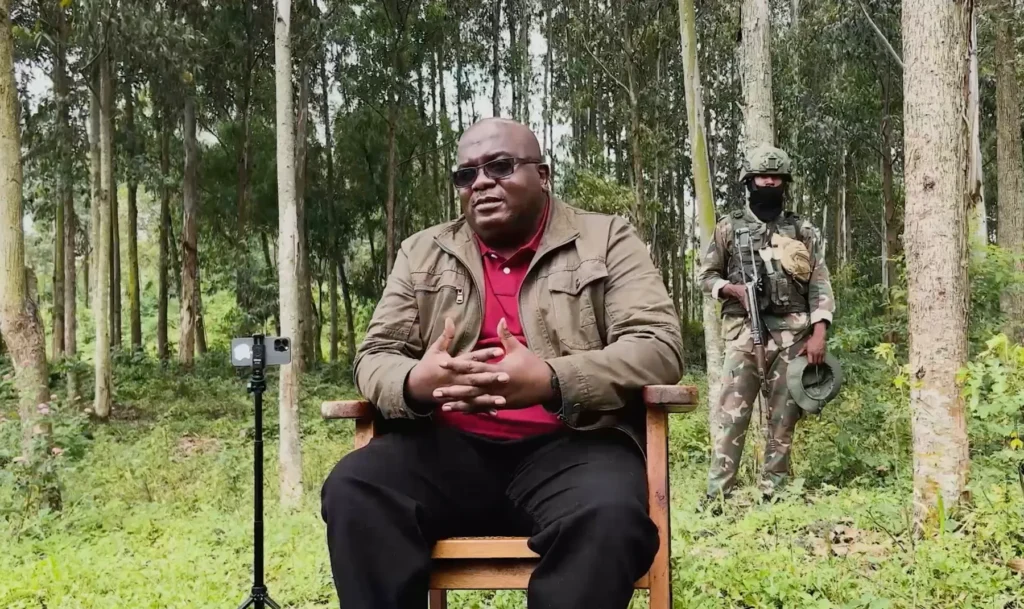At least 21 civilians were executed over two days in February by Rwanda-backed M23 rebels in the Democratic Republic of Congo’s eastern city of Goma, according to a report released by Human Rights Watch (HRW) on Tuesday. The documented killings offer a grim window into the unrelenting violence that has plagued the region amid the latest surge in a conflict that has spanned decades.
The HRW report centers on incidents that unfolded between February 22 and 23 in Goma’s Kasika neighborhood, a location that once housed Congolese army barracks and has become a recent hotspot in the crisis.
HRW said the attacks were part of a broader pattern of systematic abuses committed by M23 rebels, who have taken control of large swathes of territory in eastern Congo since January. “Commanders and combatants who directly ordered or carried out abuses should be held criminally accountable,” the organization stated in its report.
According to witness accounts cited by HRW, six men and one woman were shot in the head near Katindo military camp in Goma on February 22. The report alleges that M23 fighters were behind the executions, based on testimony from residents.
In a separate but related act of violence, the rebels were said to have murdered additional civilians. They discarded their bodies at a construction site located less than 100 meters from the camp. One of the victims was a 15-year-old boy who was forcibly taken from his home and later discovered dead at the site.
On February 23, the violence escalated further. HRW reported that M23 rebels rounded up roughly 20 young men at a nearby sports field in the same neighborhood. A witness told the organization that the rebels accused the young men of being affiliated with the Congolese army. Three of those attempting to flee were reportedly shot on the spot.
The group’s targeting of Kasika, according to HRW, was deliberate due to its historical military significance. The organization expressed concerns that the actual number of civilian deaths in Goma could be much higher. Medical personnel told HRW that more than 50 bodies were recovered from the Kasika area during the two-day wave of violence.
M23 Conflict Linked To Rwanda’s 1994 Genocide
M23’s military offensive has shaken eastern Congo. In a campaign that began earlier this year, the rebel group has captured the region’s two major cities, Goma and Bukavu, displacing hundreds of thousands of people and resulting in thousands of deaths.
Despite mounting evidence, M23 has denied responsibility for the atrocities. M23 leader Bertrand Bisimwa said the group intends to investigate the allegations and publish its findings.
“HRW gives us an opportunity to mirror ourselves. We respect this organization despite its past accusations which proved to be false.”
Bertrand Bisimwa

Other human rights bodies have also raised alarms over escalating abuses. In March, Amnesty International reported that M23 rebels raided hospitals in Goma, targeting wounded Congolese soldiers. According to their findings, 130 people were abducted, including caregivers. Many were tortured, and several remain unaccounted for.
UNICEF has described an alarming surge in sexual violence, calling February one of the worst months recorded in years. The organization reported a five-fold increase in rape cases treated across 42 health centers in eastern Congo. Shockingly, nearly one-third of the victims were children. In one reported case, a woman said all six of her daughters, the youngest only 12, were raped by armed men searching for food.
The root of the ongoing conflict is traced back to the aftermath of Rwanda’s 1994 genocide and the persistent battle for control over Congo’s abundant mineral wealth. While the United Nations has repeatedly accused Rwanda of supporting the M23 rebels, Rwanda continues to deny the charges, insisting its military actions are defensive measures against Congolese forces and their allies.
As the violence continues, calls are mounting for international accountability and intervention to stem the humanitarian crisis engulfing eastern Congo.
READ ALSO: Ghana’s Digital Health Crisis: Lightwave Monopoly Exposes Deep Governance Mishaps



















